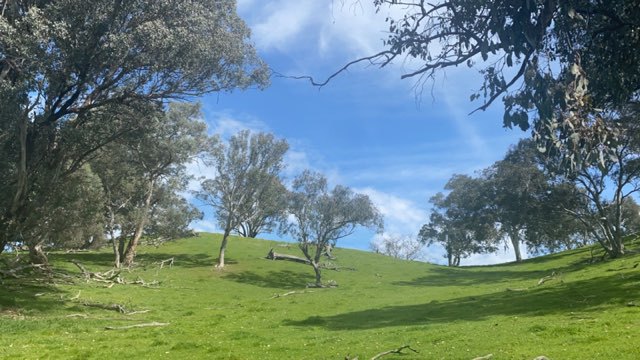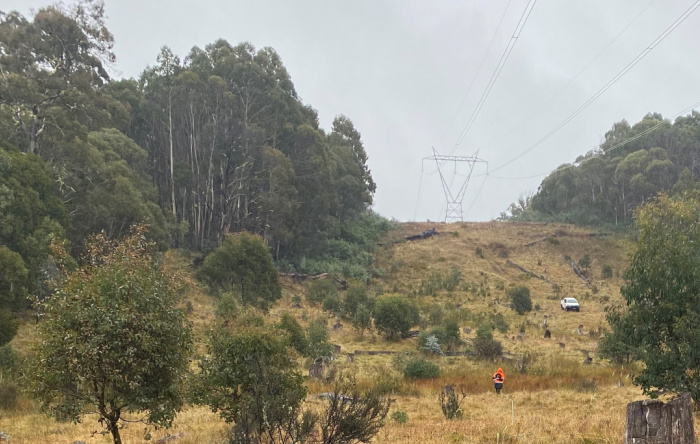HumeLink Transmission Line BDAR
Client: Aurecon
Proponent: Transgrid
Industry sector: Energy transition, utility infrastructure
Services: Terrestrial ecology, aquatic ecology and biodiversity offsetting
Location: NSW
About this Project
HumeLink Transmission Line Biodiversity Assessment Report: Niche supports transition to renewable energy with delivery of largest BDAR in NSW
As Australia’s energy landscape transitions to a greater mix of low-emission renewable energy sources, such as wind and solar, the national electricity grid needs to evolve.
Transgrid proposes to increase the energy network capacity in southern New South Wales through the development of around 365 km of new 500 kilovolt (kV) high-voltage transmission lines and associated infrastructure between Wagga Wagga, Bannaby and Maragle – the project is collectively referred to as HumeLink.
HumeLink is one of the state’s largest energy infrastructure projects and would be located across five Local Government Areas including Wagga Wagga City, Snowy Valleys, Cootamundra-Gundagai Regional, Upper Lachlan Shire and Yass Valley.
Once operational, HumeLink would deliver a cheaper, more reliable and more sustainable grid and help to transition Australia to a low carbon future. This would be achieved by increasing the amount of renewable energy that could be delivered within the National Electricity Market, including by supporting the transfer of energy from existing and new renewable energy projects in the region. The project would also deliver economic benefits such as job opportunities and support for local businesses in communities in the region.

Thoughtful progress with ‘no net loss’ to biodiversity
In New South Wales, to balance development with environmental protection, the Biodiversity Conservation Act requires that an assessor accredited under the Biodiversity Assessment Method (BAM) prepares a report on potential impacts to biodiversity values, threatened species and threatened ecological communities, and their habitats.
A Biodiversity Development Assessment Report (BDAR) provides guidance on how project proponents can avoid and minimise potential biodiversity impacts and identifies the number and class of biodiversity credits that will be required to offset unavoidable impacts, under the Biodiversity Offset Scheme (BOS), to achieve a standard of ‘no net loss’ to biodiversity.
According to Chani Wheeler, Principal Ecologist and BAM-accredited assessor at Niche, “The BOS provides a means for managing the tension between two urgent needs – development and protection of biodiversity. It provides a driver for biodiversity impact avoidance and an effective mechanism for addressing residual impacts resulting from development.”
HumeLink BDAR – the largest assessment of its kind in NSW
Since 2020, Niche has been engaged by Aurecon, on behalf of Transgrid, to prepare the HumeLink project’s BDAR and to provide ongoing advice on potential measures to refine clearing methods to limit ecological impacts, and reduce the biodiversity offset requirements.
“The HumeLink BDAR is not only the largest assessment of its kind to date, but also technically very complex as the project’s footprint spans six different subregions,” explains Simon Tweed, Manager – Natural Capital Strategy at Niche.
“Our team has carried out field surveys over three years to verify vegetation communities, assess habitat suitability for threatened fauna, and undertake targeted surveys for candidate threatened flora and fauna, including assessing aquatic habitat condition and suitability for threatened aquatic biota.”
In preparing the HumeLink BDAR, Niche’s team of ecologists and BAM-accredited assessors supported by partner organisations have completed over 3,223 hours of targeted flora & fauna survey and over 13,446 fauna trap nights. Surveys have been ongoing throughout the project’s exhibition period in late 2023, and will extend into construction phases to avoid and minimise impacts where possible. Niche and Transgrid are liaising with a range of stakeholders including landholders and government regulators.
Natural capital and offsetting – towards a sustainable future
“At Niche we share a vision to leave a positive impact on the world, so we’re proud to be at the forefront of a project that will enable the transition to clean, renewable energy while creating conservation sites across the state,” said Simon.
“For our team, this is an opportunity to contribute to a truly landscape-scale, nation-building project that will help create a sustainable future.”

Find out more about HumeLink
- HumeLink Project website
- Contact the HumeLink project team: humelink@transgrid.com.au


